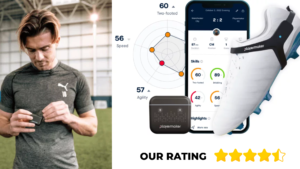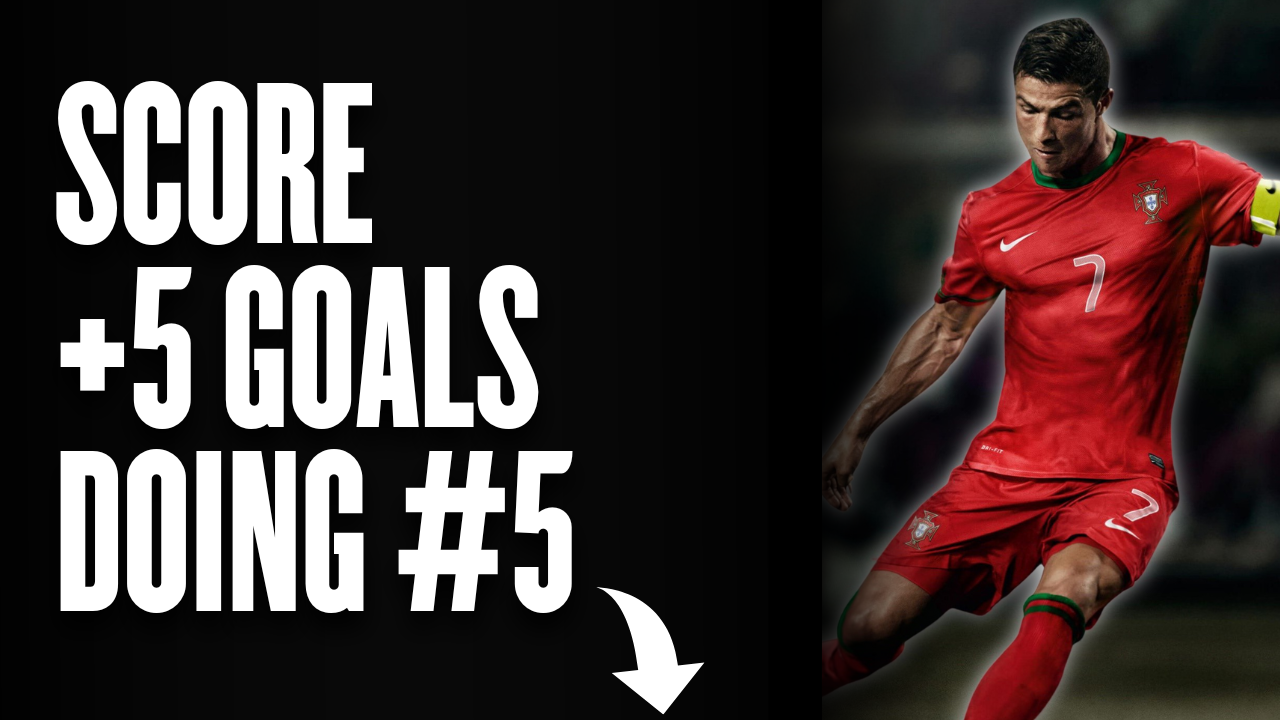
We constantly see individual footballers and football teams using supplements for performance enhancements and/or recovery. However, how effective are supplements? How can you lay down a strategy for yourself to maximize your performance and recovery results? Let’s start off with the basics.
WHAT ARE SUPPLEMENTS?
Dietary supplements are over-the-counter products that you usually take in addition to your normal diet.
They are available as tablets, powders, gels, or liquids, for example. They contain a variety of nutrients and substances found in regular foods, but in a higher concentration and dose [1]
Dietary supplements are really popular in the sports industry. Individual athletes, teams, etc. use them in an attempt to enhance performance, recovery, and overall life quality.
We strongly recommend consulting a medical professional and/or nutritionist before starting a supplement. On top of that, you should probably take care of your eating habits first. Supplements are intended to supplement your existing nutrition and meals, not to replace them.
SUPPLEMENTS FOR FOOTBALL PERFORMANCE & RECOVERY
1. Caffeine
WHAT – Caffeine is a substance that stimulates the CNS (Central Nervous System). It comes in various shapes and forms, such as coffee, tea, energy drinks, caffeine pills, caffeine/energy gels, chocolate, etc.
WHY – The supplementation of a footballer with caffeine can lead to performance enhancement. In a meta-analysis, it was found that a moderate caffeine intake prior to performance, led to significant increases in jump performance, repeated sprint ability, and total running distance. [2]
Caffeine also enhances cognitive skills and function, like awareness, alertness, reaction times [4], and focus. This is mainly due to the fact that caffeine blocks adenosine receptors. Adenosine is responsible for that feeling of lethargy you get before bed-time.
Here’s a video to better understand how caffeine works.
WHEN & HOW – Since caffeine is found in many beverages people consume daily (i.e. coffee, black tea, etc.) we can say that supplementation starts early in the day. However, we need to mention how important it is to lay out a detailed strategy to appropriately supplement your diet with the right amounts at the right time.
To feel the ergogenic effects of caffeine, you should opt for around 150-200mg of caffeine 5-60 minutes before physical activity. [2] Be careful though. Caffeine consumption later in the day can lead to lower sleeping quality and various sleeping disorders. [3] Overdosing on caffeine (exceeding 200-400mg of caffeine/day) can lead to counterproductive results (overstimulation).
2. Protein Powder
WHAT – Protein supplements usually come in a powdered form. There are various types of protein powders, with the most popular being whey, casein, and others like vegan protein powders.

*As an affiliate, I'm earning from qualifying purchases without any extra charges being placed on you.
WHY – Protein is an essential macronutrient for our body’s health and overall well-being. It participates in a process called muscle-protein synthesis which is responsible for muscle (re)construction.
In other words, protein plays a major role in muscle growth and recovery.
Footballers, and athletes in general, need a higher protein intake compared to the general population. Hitting an intake of around 1.5-2.2gr of protein per 1kg/2.2lbs every day will help you meet your requirements.
Protein powder can come in pretty handy, offering a really convenient and quick protein solution to the modern footballer. It can be really helpful to individuals who struggle to achieve a high protein intake.
WHEN & HOW – The “when” and “how” of protein consumption is dependent on various factors.
- training schedule
- life schedule
- daily protein intake needs
- type of protein powder
Whey Protein Powder – it is quicker to digest and absorb and offers a complete variety of amino-acids. These facts make it more ideal during and/or post-exercise.
Casein Protein Powder – it offers a slower digestion and absorption window, also containing a large variety of amino acids. Consider casein protein as a pre-bed supplement.
On average though, an adult footballer who follows a healthy eating lifestyle won’t need more than 1 or 2 scoops of protein powder on a normal eating day (1 scoop = 20-25gr of protein).
3. Creatine Monohydrate
WHAT – Creatine is another supplement that is really popular in the sports industry, including football.
It is naturally produced and found in your muscles in the form of phosphocreatine. Phosphocreatine is a form of energy that your body uses first (during the first 8-10 seconds) in high-intensity actions performed in football. Creatine can therefore increase your body’s phosphocreatine stores, resulting in more energy.
Creatine also comes as a supplement in various forms. According to the International Society of Sports Nutrition, creatine monohydrate is the most effective, well-researched, and most importantly, safest creatine alternative available in the markets. [5]

*As an affiliate, I'm earning from qualifying purchases without any extra charges being placed on you.
WHY – The literature behind creatine monohydrate supplementation is quite supportive. Several studies claim that creatine monohydrate can increase maximal power/strength (5–15%), work performed during sets of maximal effort muscle contractions (5–15%), single-effort sprint performance (1–5%), and work performed during repetitive sprint performance (5–15%). [6] It is also believed to increase lean muscle mass. [7]
WHEN & HOW – Although there are no definitive guidelines to creatine monohydrate consumption, the International Society of Sports Nutrition suggests following a “loading” protocol. What you basically do is consume 20gr per day (split into 3-4 doses during the day) for the first 5-7 days.
After that loading period is complete, you can limit yourself to a lower dose of 3-5gr per day to maintain high levels of creatine in your muscle stores. Timing (during the day) doesn’t play a big role.
It’s important to mention that creatine supplementation is most of the time unnecessary since the vast majority of footballers can achieve the recommended creatine production through a well-balanced diet and a properly functioning body.
In case of kidney or liver health issues, make sure to consult your doctor and/or stay away from creatine.
4. Multi-vitamins/Individual Vitamins
WHAT & WHY- Vitamins are micronutrients that are essential for various physiological functions and the overall health of your body (i.e. energy metabolism, creation of new cells, vision health, bone health, etc.).
Vegetables and fruits are rich in vitamins. Many people and footballers experience vitamin deficiencies, which can lead to a reduction in quality of life, but also negative effects on performance and recovery.
Along with a balanced diet, it is often suggested to take a multi-vitamin or individual vitamin depending on the deficiencies that the person presents. These vitamins – dietary supplements usually come in various forms (pills, tablets, capsules, gels, powder, chewing gum, liquids, etc.)
WHEN & HOW – Vitamin supplements are great for footballers who show deficiencies in certain vitamins. Blood tests enable us to make a needs analysis. After you have an image of your deficiencies (if you have any at all!), you can start supplementing your diet strategically with the appropriate vitamins and dosages.
5. Probiotics
WHAT – Probiotics are microorganisms that live inside of our bodies and help them in various functions, such as the digestion and absorption of nutrients.
There are various foods that are rich in probiotics such as Greek yogurt, Sauerkraut, and kimchi. However, people that have a hard time consuming those foods may also consider a probiotic supplement.
WHY – Probiotics have a variety of positive effects on gut health, supporting digestion and immune function. Probiotics may not be directly related to maximizing performance, however, they may have some secondary effects with a positive influence on it. These include enhanced recovery from fatigue, improved immune function, and maintenance of healthy gastrointestinal tract function. [8]
WHEN & HOW – For appropriate timing, follow the instructions provided by your pharmacist and/or the supplement’s label. In general, most supplements suggest taking your prebiotics either before a meal or with an empty stomach.
6. Electrolytes
WHAT – Electrolytes are minerals that can be found in the human body and play an important role in regulating various functions, e.g. neuromuscular function, hydration, etc.
You can find those minerals (e.g. magnesium, sodium, calcium, etc.) both in food and in dietary supplements in the form of tablets, powders, liquids, gels, etc.
WHY – In sports such as football, water, and nutrient stores gradually get depleted during exercise. These changes can lead to disturbances in your body’s content of certain minerals. In turn, these disorders can contribute to dehydration as well as increased fatigue and muscle cramps.
Mineral deficiencies can therefore negatively influence performance, recovery, and your overall life quality.
WHEN & HOW – During exercise the athlete’s nutrient reserves get depleted. Therefore, it is deemed necessary to a) “load” them before training/games, and b) replenish the lost reserves during and after exercise/games.
Loading and replenishment can be done in different ways. In addition to nutrition, you can also take a dietary supplement high in a variety of electrolytes (e.g. electrolyte tabs, sports drinks, energy gels, etc.). The timing can vary (pre-game/training, half-time, during water-breaks, post-game).
7. Hypo/Iso/Hyper-tonic Drinks/Gels
WHAT – Sports drinks contain water, simple carbohydrates, and electrolytes. There are three categories of sports drinks based on their nutrient content.
- hypotonic drinks (smaller content in water, simple carbs, and electrolytes compared to our blood)
- isotonic drinks (similar content in water, simple carbs, and electrolytes compared to our blood), and
- hypertonic drinks (greater content in water, simple carbs, and electrolytes compared to our blood)
The sports drinks we find on the market usually come in a liquid form. However, we can also find them in tablets and/or gels of this type.
WHY – As we have already mentioned, the athlete depletes his/her nutrient reserves during exercise. This can result in reduced performance, increased fatigue, and a reduced ability to recover.
WHEN & HOW – The use of hypo/iso /hypertonic drinks or gels is suggested before, during, and/or after exercise in order to load and replenish the body with water, simple carbohydrates, and electrolytes.
Click here to read more about sports-drinks.
GENERAL TIPS – GUIDELINES
Before considering any supplements for football performance, it is wise to take some facts into consideration and adopt a smart approach.
Real Foods > Supplements
First and foremost, supplements shouldn’t be your first resort when trying to combat a nutrient deficiency and/or enhance performance and recovery. Take care of your actual eating habits first, then move on to supplements.
Most of the time, filling nutritional gaps is absolutely achievable through real foods. Supplements should therefore act as supplements, not replacements of real foods.
Needs Analysis (Blood Tests & Measurements)
On top of that, we also need to mention the importance of needs analysis when considering the intake of supplements for football performance.
The analysis of your needs usually happens through a series of tests and measurements. A blood test can help you discover any deficiencies you might have in certain nutrients. A food journal will help you keep track of what you put inside of your body and recognize what your nutrition is lacking in.
Personal Health Issues
You/Your doctor/nutritionist should also take into consideration any personal health issues you might have, that might interfere with a supplement.
For example, creatine monohydrate might not be the best supplement in case of liver or kidney problems.
Overdosing
Moreover, overloading your body with a nutrient can have unfortunate consequences for your performance and overall health. For example, exceeding the daily recommended caffeine dosage might lead to an overstimulation of your CNS, which can negatively impact performance (i.e. difficulty focusing).
In fact, there’s a condition known as hypervitaminosis as a result of vitamin overdosing. Symptoms vary from vitamin to vitamin (i.e. drowsiness, nausea, kidney damage, etc.). Be aware of the recommended daily doses and don’t exceed them. Only filling the gaps of your deficiencies is the way to go.
Researching & Purchasing Supplements
Lastly, you’ll also need to invest time and money into the research and purchase of a supplement. Always purchase your supplements by yourself. Check labels (click here for banned substances), online reviews of the company, and only “trust” companies that are third-party tested, and long-known for their reliability.
Please, make sure to consult your doctor, nutritionist, and pharmacist before starting any supplement.
Liked this article? Make sure to SHARE it with your teammates and coaches! Also, don’t forget to follow us on INSTAGRAM where we post daily content to help you #levelUP your performance!
REFERENCES
[4] Tom M. McLellan, John A. Caldwell, Harris R. Lieberman,
A review of caffeine’s effects on cognitive, physical and occupational performance, Neuroscience & Biobehavioral Reviews, Volume 71, 2016, Pages 294-312, ISSN 0149-7634, https://doi.org/10.1016/j.neubiorev.2016.09.001.
[7] Nissen SL, Sharp RL. Effect of dietary supplements on lean mass and strength gains with resistance exercise: a meta-analysis. J Appl Physiol (1985). 2003 Feb;94(2):651-9. doi: 10.1152/japplphysiol.00755.2002. Epub 2002 Oct 25. PMID: 12433852.
[8] Nichols, A.W. Probiotics and athletic performance: A systematic review. Curr Sports Med Rep 6, 269–273 (2007). https://doi.org/10.1007/s11932-007-0044-5




